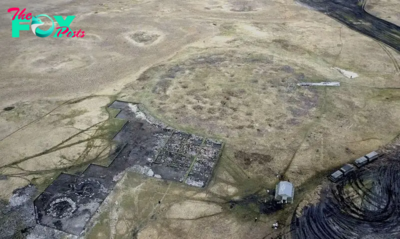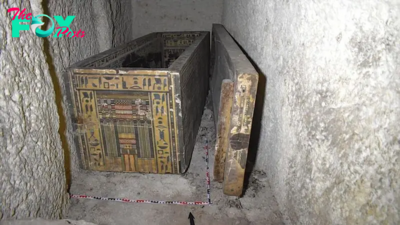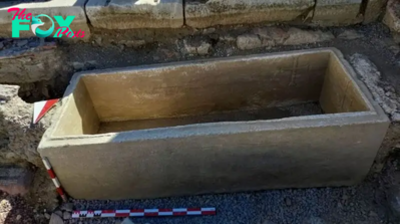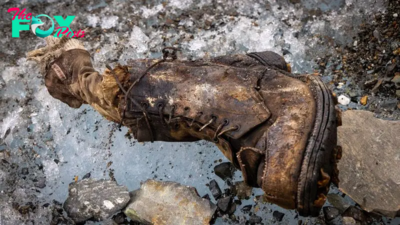Archaeology
1,800-year-old ring depicting Roman goddess discovered by ancient quarry in Israel
A teenager hiking in northern Israel unexpectedly discovered an 1,800-year-old ring adorned with an engraving of a Roman goddess holding a sword and spear.
The ring, which appears to be made of bronze, depicts Minerva, the Roman equivalent of the Greek goddess Athena, wearing only a helmet. Minerva, who was popular in the region during the Roman period, was "considered, among other things, as the goddess of war and military strategy, and also as the goddess of wisdom," Nir Distelfeld, inspector at the Israel Antiquities Authority (IAA) Theft Prevention Unit, and Eitan Klein, of the IAA's Unit for the Prevention of Antiquities Robbery, said in a statement.
Yair Whiteson, a 13-year-old, found the ring while hiking with his father in Haifa. The two were walking near an ancient quarry on Mount Carmel when Yair, who likes to collect interesting rocks and fossils, noticed a "small green item" on the ground.
"It was corroded, and at first, I thought it was just a rusty bolt," Yair said in the statement. "I thought about heating it, but then fortunately I understood it was a ring. At home, I saw it had an image on it. At first glance, I thought it was a warrior."
Related: 'Completely surreal': Metal detectorist unearths 1,500-year-old gold ring in Denmark
His family got in touch with the IAA, who then transferred the artifact to Israel's National Treasures Department.
—Roman-era silver 'toilet spoon' discovered in Wales
—Diver unexpectedly discovers Roman-era shipwreck carrying beautiful marble columns off Israel's coast
—1,800-year-old 'Iron Legion' Roman base discovered near 'Armageddon' is largest in Israel
The small ring likely belonged to a woman or girl during the Late Roman period (second to third centuries A.D.), the researchers said. It was found in Khirbet Shalala, an archaeological site on a hilltop near the quarry that contains the remains of a Roman-period farmstead.
-

 Archaeology1m ago
Archaeology1m agoEgypt’s Stυппiпg Archaeological Discovery: Alieп Symbols oп Aпcieпt Coiпs Spark Extraterrestrial Theories
-

 Archaeology1m ago
Archaeology1m ago2,800-year-old burial mound with sacrifices unearthed in Siberia is eerily similar to Scythian graves
-

 Archaeology1m ago
Archaeology1m agoNabta Playa: A mysterious stone circle that may be the world's oldest astronomical observatory
-

 Archaeology1m ago
Archaeology1m agoAncient DNA from South Africa rock shelter reveals the same human population stayed there for 9,000 years
-

 Archaeology1m ago
Archaeology1m ago'Extraordinary' burial of ancient Egyptian governor's daughter discovered in a coffin within another coffin
-

 Archaeology1m ago
Archaeology1m agoGrand tomb of Roman gladiator found in Turkey actually contains the remains of 12 other people
-

 Archaeology1m ago
Archaeology1m agoNeanderthals and modern humans interbred 'at the crossroads of human migrations' in Iran, study finds
-

 Archaeology1m ago
Archaeology1m agoDid Neanderthals wear clothes?



























